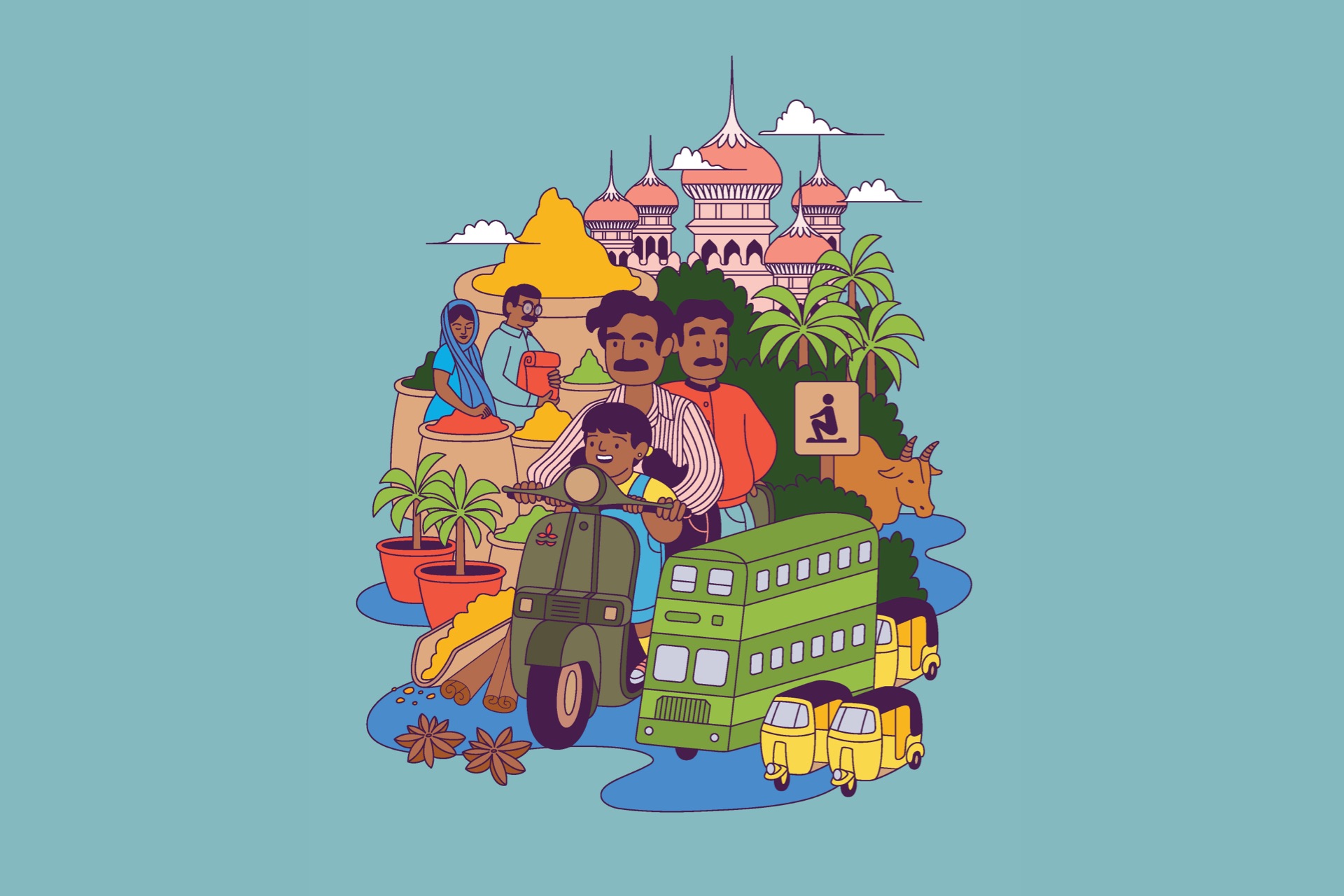Jun 11, 2024 Society
As a child of immigrants, my identity is a mix: my local upbringing combined with stories of my parents’ lives before they left India and Sāmoa. Lectures and smacks would transport me to distant lands, where my parents had bigger struggles than I had but the fruit and sense of community made it all worthwhile.
There’s an Indian dad stereotype: they say that everything comes from India. My dad is no exception, and he does come from India. According to him, the Bhagavad Gita predicted E = mc2, test-tube babies and the Big Bang. The only thing the Bhagavad Gita didn’t see coming, it seems, was my parents’ divorce. And we all saw that coming.
After the divorce, my dad decided to take me to see India. I think he thought I would explore my roots and identity, like in Eat, Pray, Love. That might have worked if I was a jaded middle-aged white woman searching for purpose, but I was an eight-year-old girl. When you’re eight, your identity is whatever TV show or movie you’re into. In 1994, my favourite movie was Aladdin and I was getting teased because of Apu from The Simpsons.
When I boarded the flight, my biggest fear was quicksand. By the time we landed 15 hours later, it was the sound of the toilet flushing. I was scared of being sucked in, I think, and ejected out? Don’t question an eight-year-old’s logic, it leads nowhere.
India was busy. I went from being an only child in a low-density town to being surrounded by bodies in a hot, sweltering minute. Outside the airport, away from the jewel-toned sarees, I saw poverty. Not scabby can-I-have-a-bite-of-your-pie poverty, real poverty. I stared at a kid shitting on the side of the road and told my dad. He told me not to stare, but I couldn’t. Staring is the best part of having eyes.
On the train, an old man asked my dad for money. I understood him, because begging is universal. I asked Dad to give the man something, but he shook his head. When the old man left, I asked Dad questions like, ‘Why are people poor?’ and ‘Why are people staring at us?’, which he responded to by kissing his teeth. I think he realised that even though I am Indian, I’m also a foreigner.
At the house, I was immediately pinched on the cheeks, arms and legs by my whole family. They all kept commenting on how fat I was — and not in that passive Western way like ‘You look healthy’ or ‘You’re so brave’. It was literally, “Angella, you’re so fat. Fatty fat fat.”
Then the whole family enveloped my dad while I went outside with my cousins. We kept our distance, each side trying to discern if the other was friend or foe. Over the next two weeks, however, we became inseparable. We slept on the floor and giggled. We were the same — except when we ate dosa in the morning. I ate mine with tomato sauce and they had theirs with pickle.
I remember one time the whole family came out to see this man with one hand, holding a writhing sack. He spoke to someone, and they said something, and long story short he dumped the contents out… and it was snakes. My family laughed, while I shrieked at the gross writhing and slithering on the dusty floor. After a few minutes, the one-handed man put the snakes back in the bag and left. That was it. Both parties were apparently happy with the exchange. I still don’t know what he did. Was he a snake charmer? A debt collector? An Indian version of a Mormon? And what the fuck happened to his other hand? I’ll never know, and I have to somehow accept that.
Another time, we went to the planetarium. Planetariums are like a Motion Master to the stars, which is cool, but the weirdest thing for me was when I needed to use the loo. Dad waited outside while I went in. Behind each door was a toilet embedded in the ground like it was trapped in quicksand. There was no toilet paper either, just a jug of water. I stared at it like it was an NCEA excellence maths question.
There was an old woman by the row of sinks and I asked her if she could help me. She didn’t understand my English, so I asked her again in Sāmoan because it felt right. To my surprise, she hobbled over and helped me. I’ve always found the memory of that moment heartwarming, because it made me realise that maybe Indians and Sāmoans can work together. My parents couldn’t, but their cultures can.
When I returned home, my teacher at school asked me to share a story with the class about the trip. I should quickly add that it’s very common in India to have domestic help. There were two women at my family’s house who helped with chores and taking care of me and my cousins. I didn’t know what they were called.
Anyway, this is the story I told about my life-changing journey to India.
I talked for 10 minutes about the weird toilets and the poo and the squashed frogs that were everywhere. Finally, my teacher interrupted and asked if I actually liked anything there.
“Yeah. My cousins and the slaves.”
The teacher called my dad and told him what I’d said. When I got home, Dad gave me a lecture. This time I wasn’t magically transported to his vision of the motherland, I had my own.






